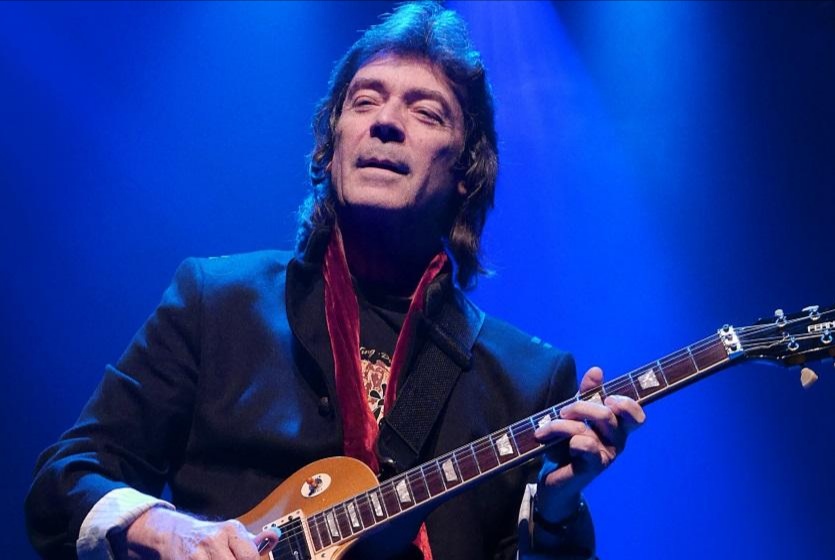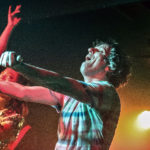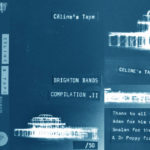It was so long ago that I last saw Steve Hackett live in concert, while he was still part of the iconic five-man Genesis of the 1970s that comprised, in addition to him, Peter Gabriel, Mike Rutherford, Tony Banks and Phil Collins that I thought I might need a time machine to see him again. I’ll give him his due he’s aged well, with his lush bouffant hair style.
Hackett is only one of a few left to carry on flying the flag for progressive rock but thank God he does because on the strength of this performance tonight he and his band are still at the top of their game, playing highly technical music with a panache that young musicians would do well to study hard. It was a shame that not many younger folk were in a sold-out audience, indeed few appeared to be under 50.
Hackett and his band, still serial tourers, were in town to present some of his own work from various albums over the years in part one of the show, followed by one of his Genesis Revisited performances, in this case the whole of the 1973 album ‘Selling England by the Pound’, which he has identified as his favourite.
After Gabriel left Genesis I didn’t follow them as intently and wasn’t as familiar with Hackett’s subsequent work as I perhaps should be. Running through several of his many albums, with a focus on ‘Spectral Mornings’, and performing songs on some of which he takes the lead vocal (and he stands up throughout the show, for those who remember him only from Genesis), you can hear the ‘Genesis influence’ in some of them and one in particular could have been lifted straight off a Genesis album. But in the main Hackett’s songs are more industrial, in keeping with the changing times and on the night, both in his own set and the Genesis one he utilised his woodwind man Rob Townsend extensively, bringing a pleasing new dimension to his work.
We also got a brief intervention from ‘Brother John’ and a couple of solos, including a drum solo in ‘Clocks – the Angel of Mons’. I haven’t heard one for decades, they became passé in the 1990s, but this one was interesting for the flavour of Carl Palmer it brought, especially around the cymbals, from Craig Blundell, who’s played with King Crimson and Iron Maiden.
And so to the Genesis set, which, with all due respect to Steve’s own work, was probably the more anticipated by the majority of the audience, several of whom were dressed in the manner of 1970’s band. At one point I thought Gabriel himself had sat next to me.
Singer Nad Sylvan, looking like Lissie when he wasn’t sporting his shades and sometimes wearing what could have been a piece of carpet, wasn’t much evident in the first set, making small, occasional vocal contributions then slinking off-stage as if a bladder problem had been exacerbated by a few pints of Holt’s bitter. I half-expected him cheekily to return wearing a foxes head or an old man mask as Gabriel used to do, to stir a reaction in the immensely cool, almost glacial Hackett.
But in the second one he was the centre of attention even though he was positioned slightly behind and to the right of Steve.
Sylvan will always be compared with Peter Gabriel, he can’t escape it. He’s a character in his own right though and after a sluggish start and a missed cue in the opening bars of ‘Dancing with the Moonlit Knight’ he grew in confidence and composure as the night wore on. While he lacks Gabriel’s charisma – only Gabriel has that – he has the facial expressions to pull off most of the complex theatrical songs of the Genesis era that included ‘Selling England by the Pound,’ although he also lacks Gabriel’s agility around the stage, relying on those expressions for dramatic effect.
Some of the lyrical humour might have been lost on the few younger members of the audience, indeed right from the start, with the line, “Knights of the Green Shield stamp and shout”. If I recall, that line used to be accompanied by a huge slide of a Green Shield Stamp projected on the stage wall.
The performance of ‘Selling England…’ was a master class of technical musicianship, but even then there were comparative highs and lows. In ‘I know what I like (in your wardrobe)’ for example Nad Sylvan didn’t quite achieve the original characterisation of the narrator and ‘The Battle of Epping Forest’ became a cacophony of noise, out of which it was hard to identify the tune despite the superior acoustics of the Hall. And I’d never realised previously how complex a song it is to play. On the other hand by now Nad had found his feet and his portrayal of the characters was spot on with perhaps the exception of a very restrained, rather than camp, “And Harold Demure, who’s still not quite sure…” This is 2019 after all, not 1973 and there are certain things you can’t say or even suggest.
His delivery of ‘More fool me,’ to an acoustic backing from Hackett was a delight, I dare say better than Phil Collins’ original, while ‘After the ordeal’, ‘Aisle of Plenty,’ the Gabriel/Hackett song ‘Déjà vu’ which was never recorded, and the closer ‘Dance on a volcano’ from ‘A trick of the tail’ were all top class.
That leaves the two songs which were collectively the highlight of the evening and both of which had everyone in the auditorium – and I mean everyone – on their feet in appreciation. ‘Firth of Fifth’ is regarded by many as the best song Genesis ever wrote, with one of the top guitar solos of all times; no shredding, just exquisite playing.
‘The Cinema Show’ with that mesmerising 7/8 rhythm backing the keyboard solo, was possibly even better.
(not all the musicians in the videos are the ones that took part on the night)
And as with the earlier set Townsend’s woodwind, and especially the sax, added a different perspective to the original recordings.
“Have you got time for ‘Supper’s Ready’”? cried a voice in the crowd but it wasn’t to be. That would have taken us well into the curfew.
The band were a long time coming back for the encore but when they did they hit 11 on the volume scale as they breezed through a convoluted jam of his own songs ‘Myopia’ and ‘Slogans’, together with ‘Los Endos’ the final track on ‘A trick of the tail’ which was accredited to the entirety of Genesis. Doubtless conspiracy theorists will read something into that.
Hackett has gathered a bunch of highly talented musicians around him without whom none of this would be possible but at the end of the day it is still his sublime guitar skills that make both his and the Genesis songs so appealing. In fact, I’d never realised just how much of that Genesis sound emanated from him.
As a couple of thousand happy people left the Bridgewater Hall they mingled with Manchester City supporters who’d spent a few hours in the cold and damp watching a dull 1-1 draw against the glamorous Shakhtar Donetsk. I know who had the better time.




